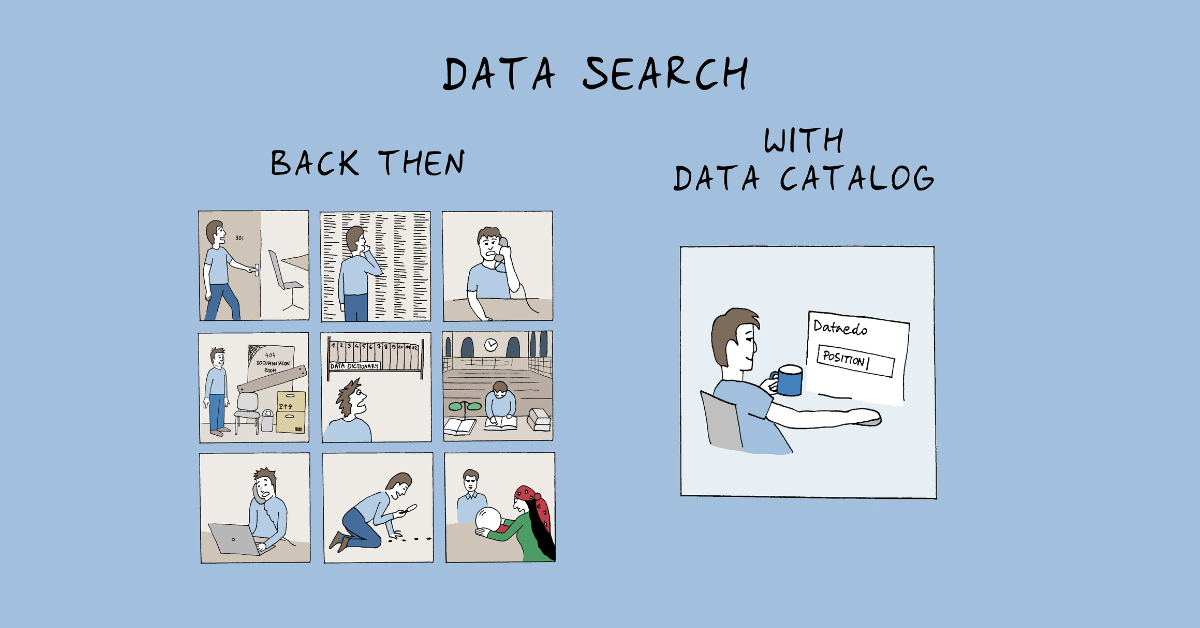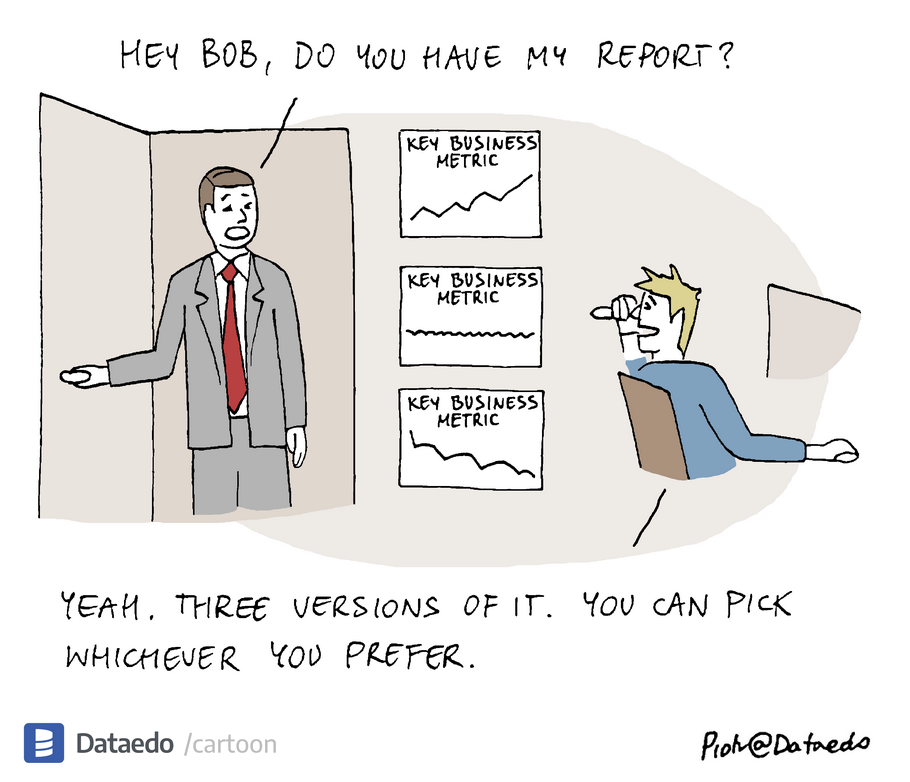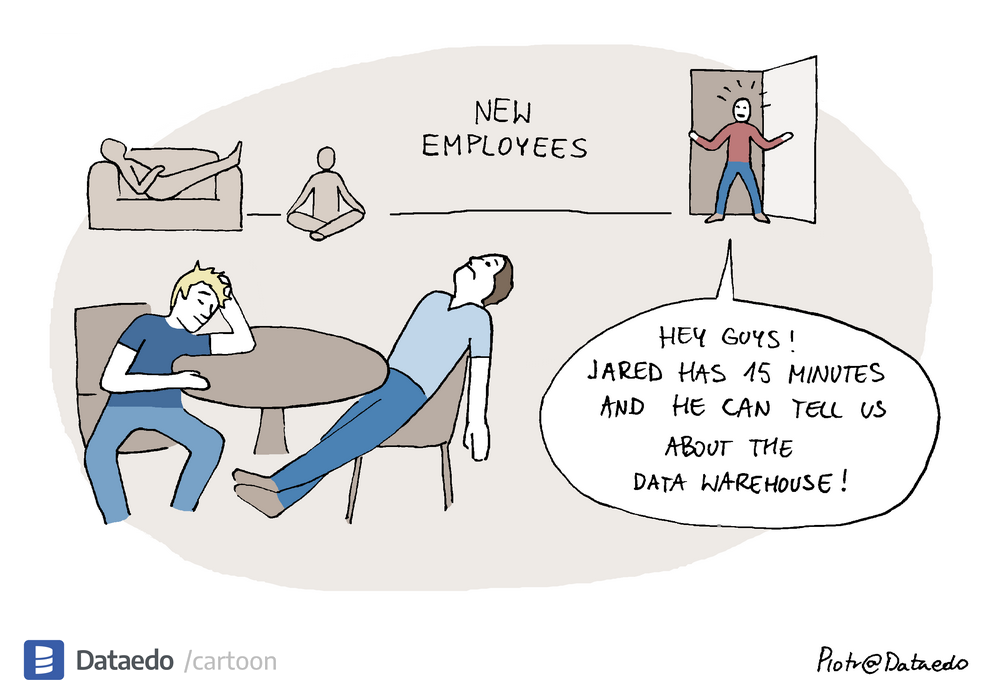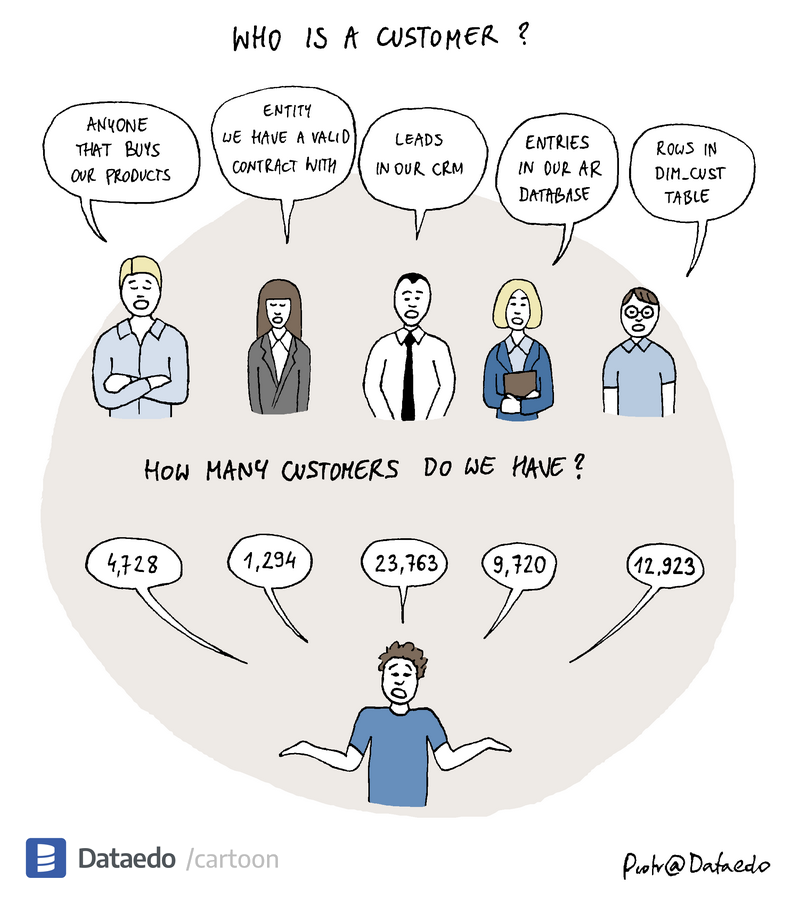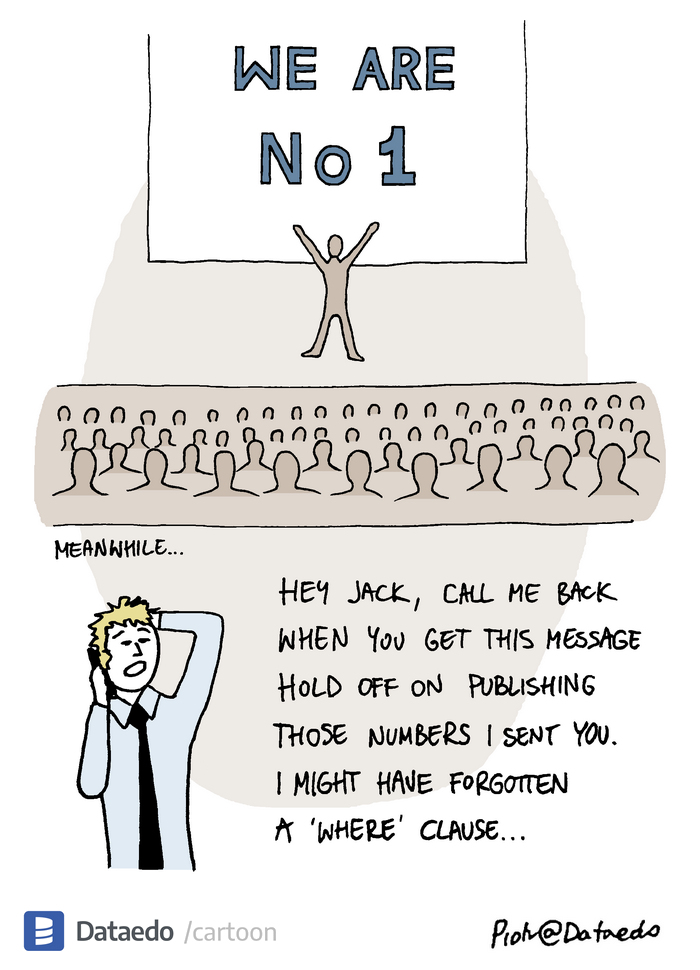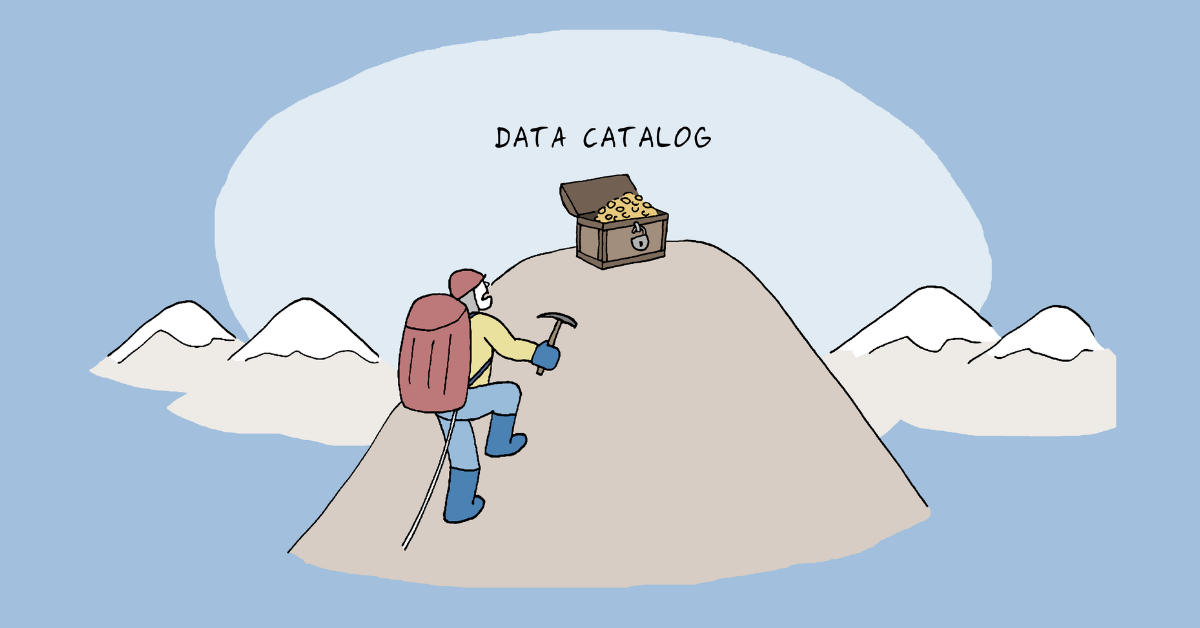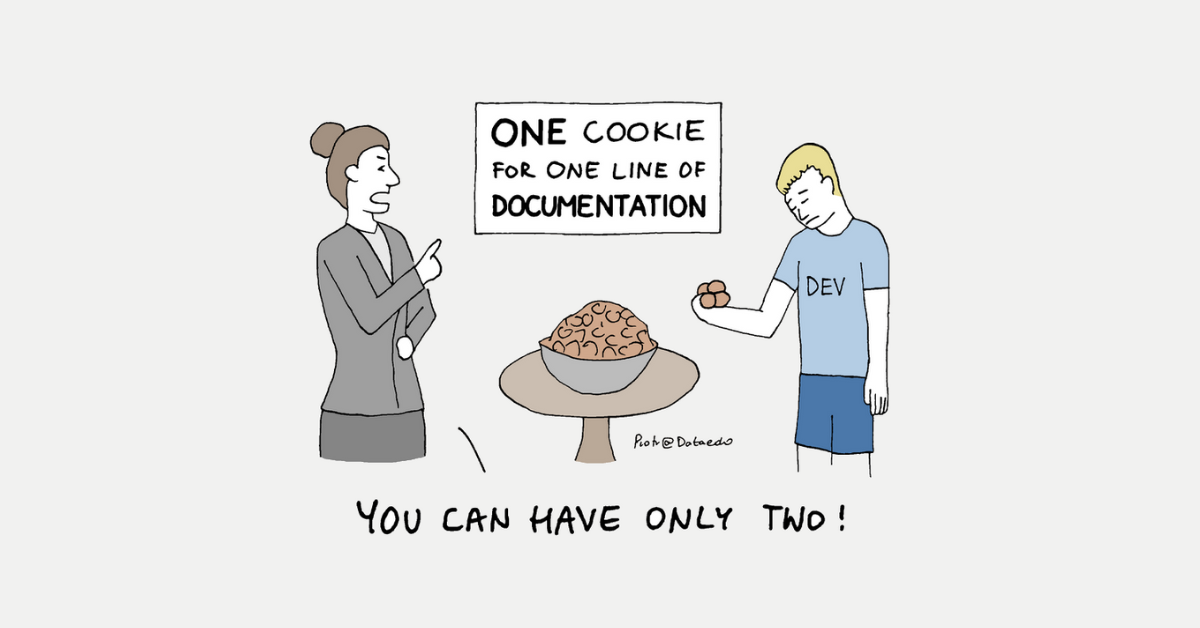It’s almost a certainty that at some point in your Dataedo project, you’ll want to encourage more people to use the data catalog you’re creating. Do you know how to talk to others about the value of the data catalog in a way that makes them want to try it?
In this article, I suggest a few strategies for these conversations: you need to help people understand and feel how the data catalog will benefit them personally. That’s the only way they will use your data catalog for the long term.
After all the hard work you’ve put into creating a data catalog in Dataedo, how do you get others to use it? You know its value as “the single source of truth” for your organization, but how do you convince others? Nearly everyone who has built a data catalog faces this situation at some point so let’s think about some ways to help others recognize the value of Dataedo as a resource they can rely on.
Let’s face it, change is hard. Most people will habitually do things exactly as they always have done simply because they’re comfortable doing it that way. For example, let’s consider a reporting analyst- we’ll call him Jim.
Jim is creating a new report and needs to know whether several metrics exist in the data warehouse and if so, where they are. He remembers that Jason in IT has helped him find data several times in the past, so he sends him a message describing the project and the data he needs. He asks him if the metrics exist. Jim knows that Jason is an expert, so he does not hesitate to ask for his help, even though this wastes time for both of them. The fact is that situations like this are one of the main reasons the data catalog exists. Jim could have done a quick search in the data catalog to find the information he needed, but that’s not his normal routine—people will continue to do things the same way they always have done unless they are convinced that there’s a better way.
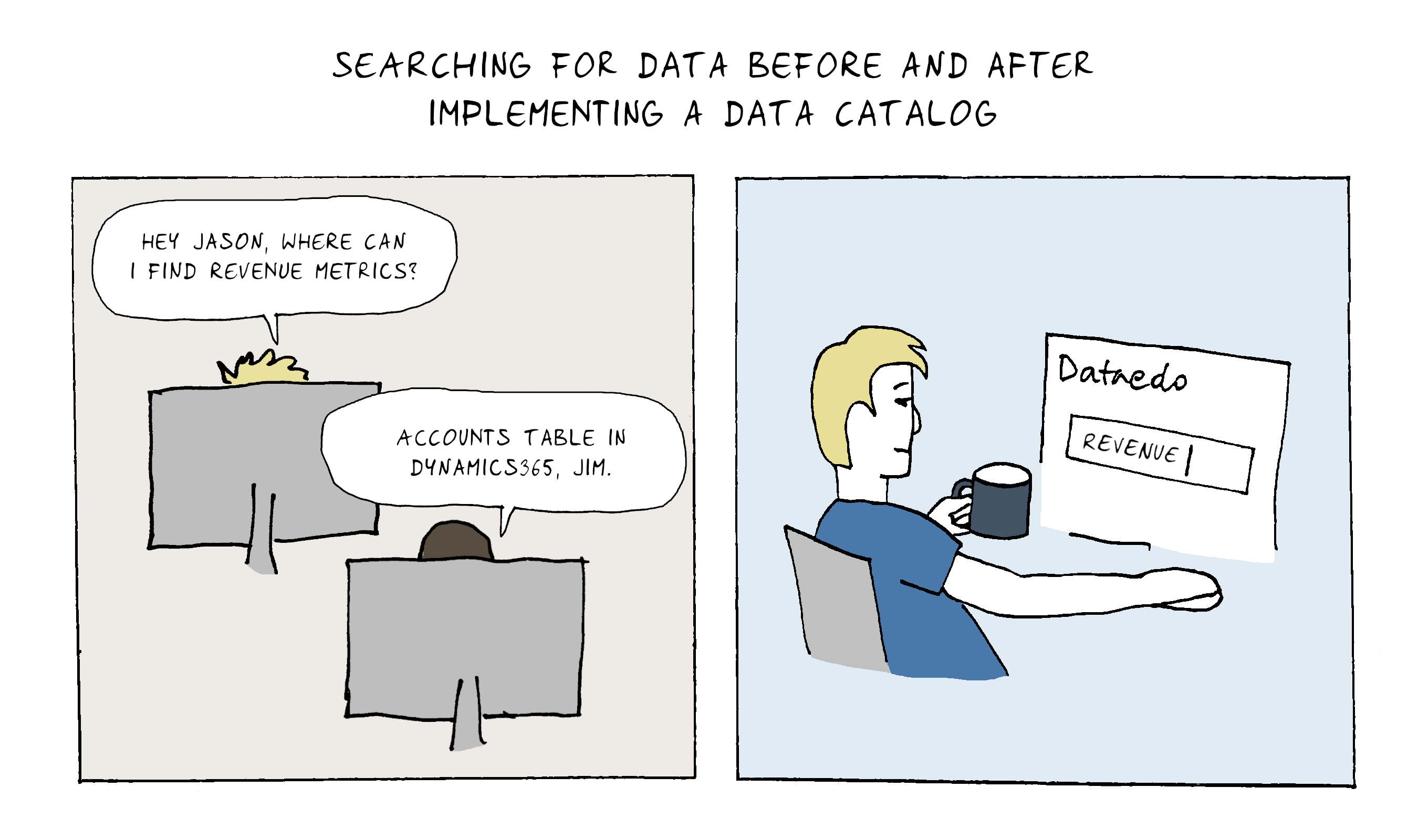
Let’s explore some ways to talk to others and convince them that changing their routine is worth the effort.
Education
It is quite likely that many (or even most or all) of the potential users of the data catalog in your organization don’t know it exists. Or if they do know, they may not know what it is. The first step to engaging people is informing them about the data catalog. Perhaps you need to start at the very beginning and tell them what a data catalog is and why it’s useful. Here is an example:
A data catalog is a collection of information about data assets in the organization. The catalog enables users to find and understand relevant data for the purpose of extracting business value. The data catalog consists of various types of information that is useful to both business and technical users. There are many things we could list as benefits of the data catalog. Here are just two:
- The data catalog is a comprehensive representation of all the data assets in the organization - users can search the data catalog and feel confident that they have all the information they need. They don’t have to wonder if there are other sources they might have missed.
- The data catalog is complete. Users can be confident that the catalog will give them everything they need to know about the data they’re investigating, whether that’s definitions, relationships, lineages, privacy classifications, or the like. It’s all there and they don’t need to look any further or ask anyone for help.
In other words, the data catalog contains all the information data users need and it can be trusted. When a reference like this exists, the need to rely on a message to a busy co-worker is lessened.
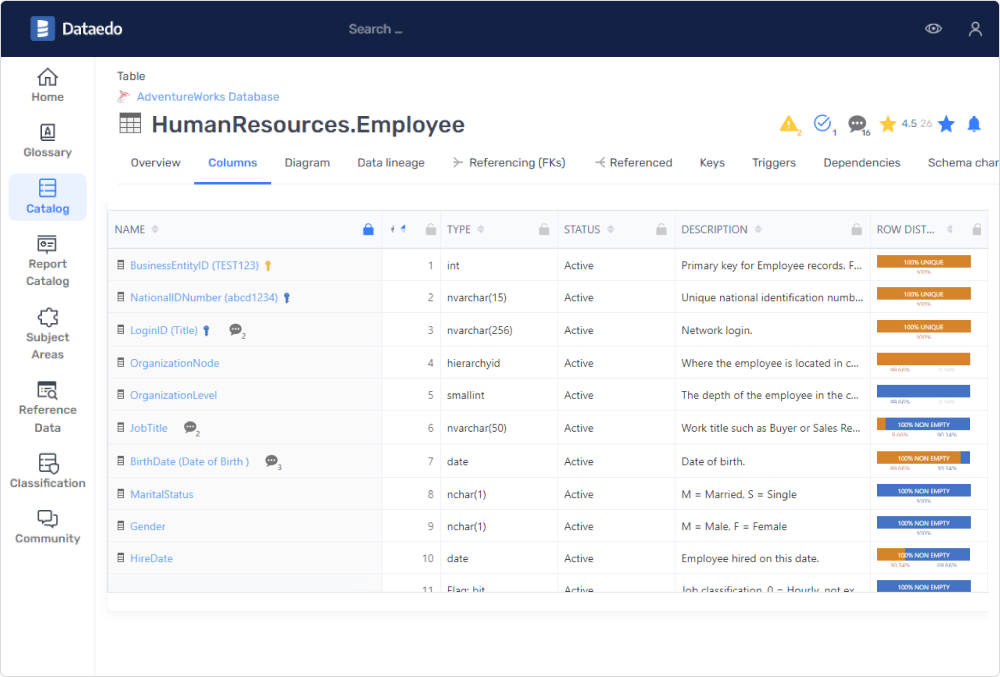
What’s in it for me?
People won’t change unless they see a solid benefit in doing so. Just knowing that there’s a data catalog isn’t enough. They need to experience and feel its benefit personally. To demonstrate this to others, I recommend a dual approach.
First, point out to them how much time is wasted, in general, by people looking for information or knowledge, not to mention the time they spend waiting for replies from others whom they ask for answers. Then ask them specifically how much time they personally spend searching for information in an average day or week and then lead them through an example search in Dataedo so they can experience the difference for themselves.
Second, train the IT experts that others contact for information how to use the data catalog and instruct them to send a screenshot and a link to the answer in Dataedo to people who send them ad hoc requests. This approach does take a little more time for the experts in the short term, but ultimately, the number of requests will be reduced as people become more self-reliant and use the data catalog themselves.
Get the Users Involved
People will be more likely to embrace the data catalog if they feel like their voice is heard. Encourage users to provide feedback on glossary terms and definitions, data sets, table and column descriptions, and other assets via Dataedo’s Community feature. Then be certain that they receive a reply to their comments in a timely manner. Nothing is so disheartening to a user as making a comment or asking a question and not receiving a reply for weeks or months. A timely response tells them explicitly that their input is valuable and implicitly that someone is actively working with the data catalog and that it won’t become stagnant over time.
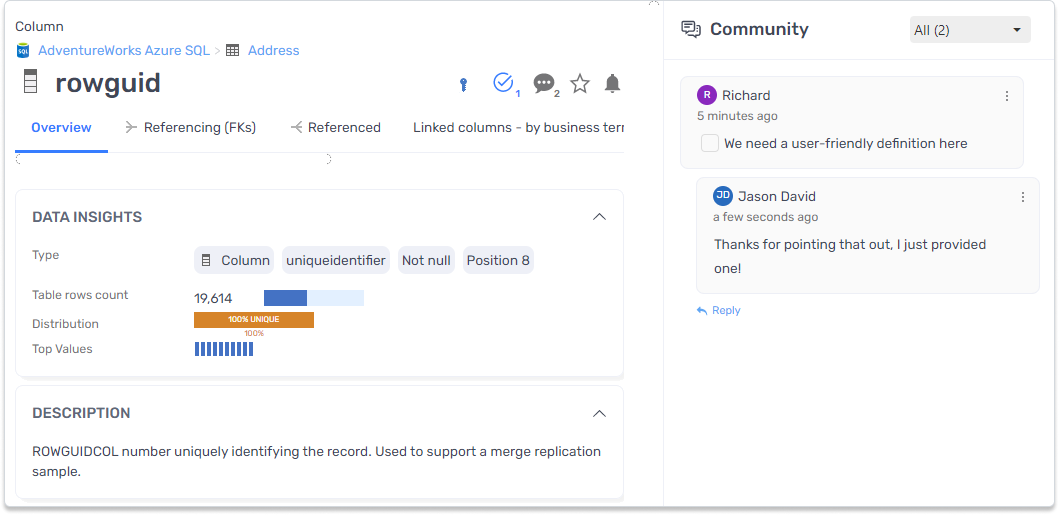
Money Makes the World Go Around
When talking to management about Dataedo and the data catalog, be sure to demonstrate its value in terms of return on investment (ROI). Someone already agreed to pay for the Dataedo subscription. Show them their investment was worth the cost.
One aspect of this can be the amount of time saved by people searching for information plus the amount of time that the IT experts we mentioned above save by not spending time answering many ad hoc questions from others. Chances are that these experts have been with the organization for a considerable length of time, so they probably have above-average salaries. Estimate the amount of time they spend on ad hoc requests and convert that to the amount their time costs. Chances are it’s a significant amount of money.
As mentioned above, the data catalog also reduces the amount of time people such as our reporting analyst, Jim, waste searching for information or waiting for someone else to provide it for them. There’s also the situation where people must redo their work because the data was not understood correctly the first time. You should be able to estimate their increase in productivity for all these situations and convert that to a monetary amount.
What about time that could be saved by onboarding new employees more efficiently? The quicker they understand your data systems, the quicker they become profitable to your organization.
How about time wasted by people who don’t understand concepts the same way? If the first five minutes of every meeting are spent defining terminology just so people understand each other, productivity is reduced and trust is compromised.
Finally, imagine the business cost to the organization when data are misreported or decisions are based on data that was incomplete, misunderstood, or misrepresented. When people think in financial terms, they suddenly see the value of not only having quality data (that’s a topic for another article) but also understanding and using that data correctly.
Wrapping It Up
Back to the question of how to convince others to use the data catalog you’ve worked so hard to create: appeal to their emotions. Are they frustrated with the amount of time wasted looking for information or trying to understand the data they have? Show them how Dataedo can help them. Are they worried about costs? Show them how Dataedo makes people more efficient and ultimately saves money.
In other words, speak to people about their individual concerns. Tailor your conversations to address their “pain points” and show them how Dataedo can help them overcome the pain.











 Richard Monk
Richard Monk
